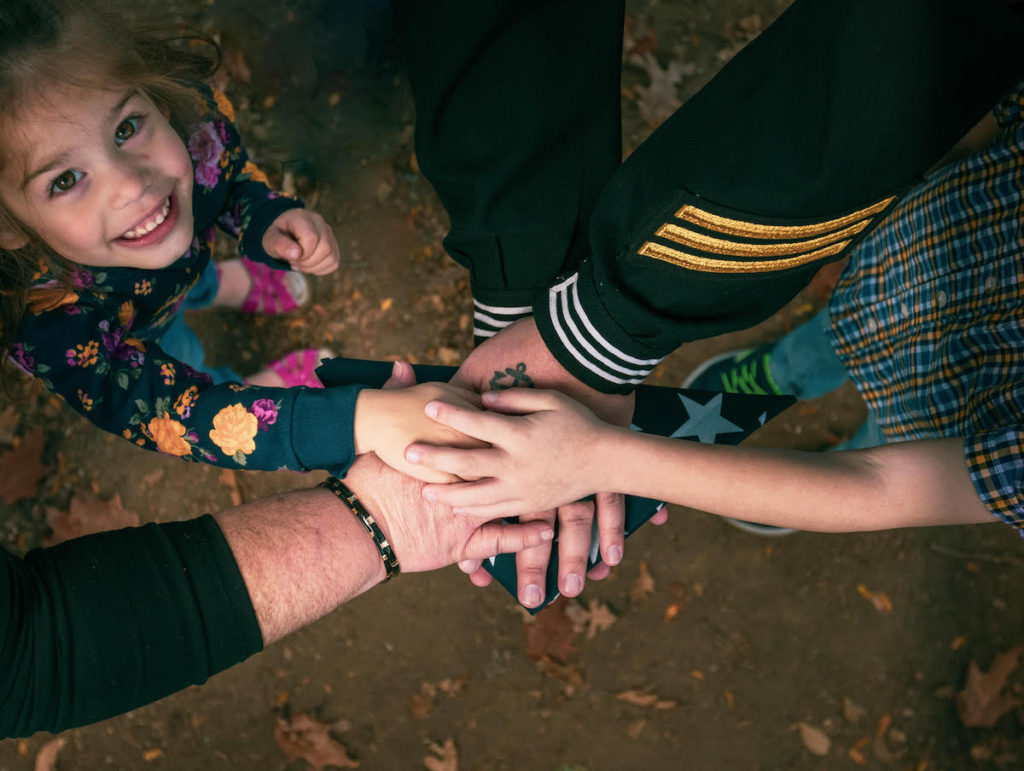Published: August 17, 2022

Summer is nearly in our rearview mirror and back-to-school time is here!
The large number of families PCSing this season means thousands of children will start the upcoming school year somewhere different. New friends, changes in education delivery due to evolving COVID-19 guidelines, and sometimes unfamiliar curriculum await young minds, many of whom are still reeling from the challenges of everyday life as a military child.
That’s why there’s no better time to put the spotlight on the mental health of our military children than right now.
While it’s important that the resilience and independence of military children are celebrated, it’s equally imperative to recognize and normalize the mental health challenges this lifestyle poses.
Not immune to the stresses of isolation or separation, children may often feel the anxiety associated with a loss of control. School performance, relationship building, and daily functionality are a few of the many areas impacted by a child’s mental health.
To get a closer look into this issue, the 2020 and 2021 Military Family Lifestyle Survey (MFLS) explored how military families perceived the mental health of their children. The findings are important as they highlight how the changes in the severity of the COVID-19 pandemic may have affected these experiences.
In early 2021, Blue Star Families met with August, a military spouse and mother of two, who spoke to the harsh realities of these effects on her children in the previous year.
“Military life has become more difficult for my son the older he gets,” August said. “He has been in four schools the first three years of his education. Since the pandemic, the isolation has been really hard on us as a family.”
During this time, many schools opted to move to virtual learning, and by mid-2020, the Census Bureau reported 93% of households with school-age children were doing some form of distance learning during COVID-19.
These less than ideal circumstances impacted more than half of active-duty family respondents to the 2020 MFLS. They reported that COVID-19 had made their own mental health (59%) and their children’s mental health (52%) worse or much worse.
“When school closed, my son really struggled,” August shared. “Not being able to see his friends, not having that social interaction, he has really suffered. He started having anxiety attacks being on camera having to do Zoom class.”
Fast forward to 2021, most schools across the nation transitioned back to in-person learning or hybrid education modality. And while most active-duty family respondents to the 2021 MFLS reported their children’s mental health was “good” or “excellent,” a notable proportion (43%) rated at least one child’s mental health as “fair,” “poor,” or “very poor.”
Several factors are at play simultaneously here, including the fluidity of learning environments, possible separation from their service members, and for some families, a change in duty station during the pandemic. The combination of these factors highlights the difference between military children’s experiences, compared to those of their civilian counterparts.
Which begs the question: how do we help our military children navigate so many changes during the most formidable time in their lives? More urgently, how do we get them the help they need to overcome mental health stressors to build stronger emotional foundations for the future?
In the 2021 MFLS, 17% of active-duty family respondents reported they would like their child to receive mental health care, but they currently do not. Furthermore, roughly 1 in 5 (21%) reported their child does not receive mental health care due to concerns about a mental health diagnosis preventing future military service.
Consider August’s concerns about letting her son fall behind and letting him down as a parent. This is where it begins.
If you’re concerned about your military child’s mental health and wondering about the steps you can take to make a positive impact, here are some starter tips:
- Recognize and identify a child’s struggles, and put them first. Overcoming the burdens and stressors your child is experiencing will require your support.
- Be vocal about that acknowledgment. It is imperative that we discuss mental health with our children in a straightforward manner.
- Use your resources. Blue Star Families members have access to several perks such as Spiritune and Headspace, which help with meditation and mindfulness. Military families can also seek assistance through Military OneSource, the Department of Veterans Affairs, or contact TRICARE directly for additional resources, online guides, and tools to use when broaching the subject of mental health with a child.
No matter what, always remember that Blue Star Families is here to help military families like yours through the unique challenges associated with this life.
We continue to be a trusted community where you can openly share your experiences with us.
Posted In: Mental Health
